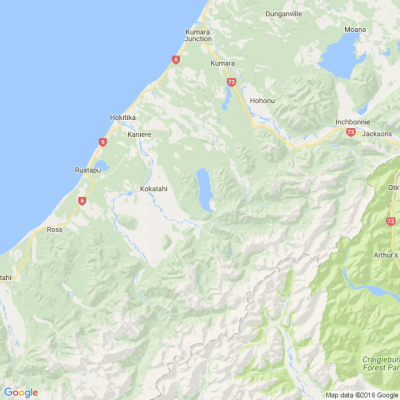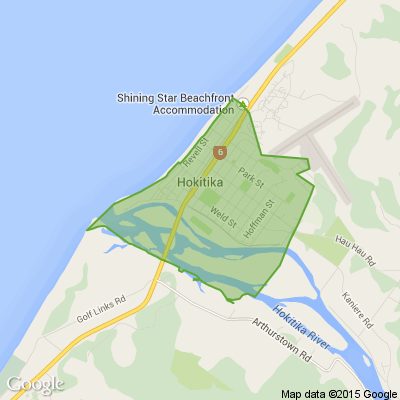West Coast rates mistake will see 16,000 bills resent
By local democracy reporter Brendon McMahon:
The West Coast Regional Council is now faced with "a massive task" of resending about 16,000 rates invoices as it cleans up its earlier mistake.
It follows the shock of ratepayers opening their bills early in October to find increases of anywhere up to 100%, after council passed a general rates rise of 16.4% in June.
It later emerged the wrong capital value factor was used to assess rates demands in more than half of the bills sent out in early October.
It mainly affected ratepayers who are within special rating districts for flood protection assets, such as the Greymouth Floodwall.
Chief executive Darryl Lew told the council's Risk and Assurance Committee on Monday that "a complete diagnosis" had been done across all the original invoices.
"We now understand what went wrong and what we need to do to put it right," Lew said.
He said steps were being taken to avoid a repeat of the mess.
"It is critical now ... that we develop an internal control framework around rates generation into the future. One doesn't exist at the moment."
Lew said the council proposed undertaking "quite a complex" mail merge exercise in fresh generation of between 10,000 and 16,000 new rates demands.
At the same time he had implemented "a control procedure and a checking procedure" to ensure everything was right as the new invoices were generated then mailed.
"That is not a trivial task."
Sending new corrected rates demands out could take a couple of weeks, but it would be clearer by the end of Monday, he said.
Lew said council staff were meeting its auditor PricewaterhouseCooper and the contractor who maintained council's rating system this afternoon to work through the practicalities.
He said the computer based rates system used by council was currently used by about other 30 local authorities.
Lew said he was commissioning a new internal control framework for the rates system given it did not have one currently.
Risk and Assurance Committee chairperson Frank Dooley said he appreciated what the new chief executive and his team had done to rectify what had been an "embarrassment".
PricewaterhouseCooper confirmed the original glitch related to the rates generated for the ratepayers in council's special rating districts. It amounted to 16,087 invoices, and would take time to correct.
"There is a large credit that has to be processed," Dooley said.
He suggested that everyone should still pay their rates other than that charged specifically to their special rating district.
"That's the only error here, the rates for the special rating district."
Dooley said there was "one error that wasn't picked up" in going back to the original decision on June 27 to strike the general rates increase, but it had a huge impact.
"There will be a massive process to correct over 16,000 credits."
Dooley said was recommending that if people were unhappy with their 2023-24 rates demand, then they could just pay based on their 2022-23 demand.
It was vital people still paid their rates by November 30 to avoid "a cascading effect" on council's cash flow.
The council previously extended the deadline from October 20.
Dooley said as long as people paid something by November 30, council would exercise "total discretion" around penalties.
Lew repeated there was "a massive amount of work" to do in the meantime.
⚠️ DOGS DIE IN HOT CARS. If you love them, don't leave them. ⚠️
It's a message we share time and time again, and this year, we're calling on you to help us spread that message further.
Did you know that calls to SPCA about dogs left inside hot cars made up a whopping 11% of all welfare calls last summer? This is a completely preventable issue, and one which is causing hundreds of dogs (often loved pets) to suffer.
Here are some quick facts to share with the dog owners in your life:
👉 The temperature inside a car can heat to over 50°C in less than 15 minutes.
👉 Parking in the shade and cracking windows does little to help on a warm day. Dogs rely on panting to keep cool, which they can't do in a hot car.
👉 This puts dogs at a high risk of heatstroke - a serious condition for dogs, with a mortality rate between 39%-50%.
👉 It is an offence under the Animal Welfare Act to leave a dog in a hot vehicle if they are showing signs of heat stress. You can be fined, and prosecuted.
SPCA has created downloadable resources to help you spread the message even further. Posters, a flyer, and a social media tile can be downloaded from our website here: www.spca.nz...
We encourage you to use these - and ask your local businesses to display the posters if they can. Flyers can be kept in your car and handed out as needed.
This is a community problem, and one we cannot solve alone. Help us to prevent more tragedies this summer by sharing this post.
On behalf of the animals - thank you ❤️

Best way to use leftovers?
I'm sure you've got some excess ham at home or cold roast potatoes.
What are some of your favourite ways to use leftover food from Christmas day? Share below.








 Loading…
Loading…
















